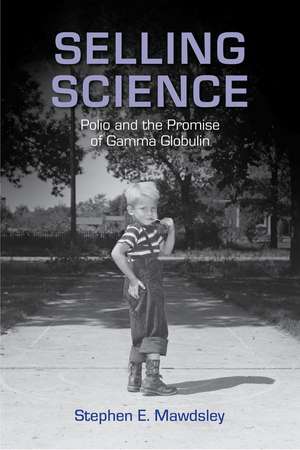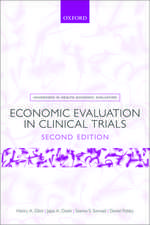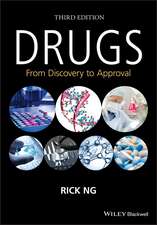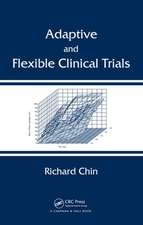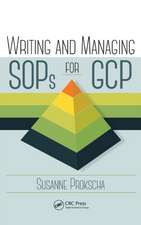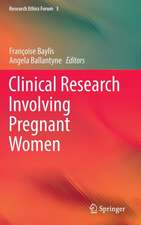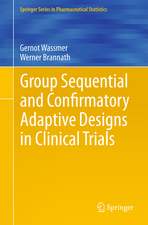Selling Science: Polio and the Promise of Gamma Globulin: Critical Issues in Health and Medicine
Autor Stephen E. Mawdsleyen Limba Engleză Hardback – 31 iul 2016 – vârsta ani
Today, when many parents seem reluctant to have their children vaccinated, even with long proven medications, the Salk vaccine trial, which enrolled millions of healthy children to test an unproven medical intervention, seems nothing short of astonishing. In Selling Science, medical historian Stephen E. Mawdsley recounts the untold story of the first large clinical trial to control polio using healthy children—55,000 healthy children—revealing how this long-forgotten incident cleared the path for Salk’s later trial.
Mawdsley describes how, in the early 1950s, Dr. William Hammon and the National Foundation for Infantile Paralysis launched a pioneering medical experiment on a previously untried scale. Conducted on over 55,000 healthy children in Texas, Utah, Iowa, and Nebraska, this landmark study assessed the safety and effectiveness of a blood component, gamma globulin, to prevent paralytic polio. The value of the proposed experiment was questioned by many prominent health professionals as it harbored potential health risks, but as Mawdsley points out, compromise and coercion moved it forward. And though the trial returned dubious results, it was presented to the public as a triumph and used to justify a federally sanctioned mass immunization study on thousands of families between 1953 and 1954. Indeed, the concept, conduct, and outcome of the GG study were sold to health professionals, medical researchers, and the public at each stage. At a time when most Americans trusted scientists, their mutual encounter under the auspices of conquering disease was shaped by politics, marketing, and at times, deception.
Drawing on oral history interviews, medical journals, newspapers, meeting minutes, and private institutional records, Selling Science sheds light on the ethics of scientific conduct, and on the power of marketing to shape public opinion about medical experimentation.
Din seria Critical Issues in Health and Medicine
-
 Preț: 254.52 lei
Preț: 254.52 lei -
 Preț: 232.10 lei
Preț: 232.10 lei - 5%
 Preț: 241.99 lei
Preț: 241.99 lei -
 Preț: 184.80 lei
Preț: 184.80 lei - 5%
 Preț: 241.78 lei
Preț: 241.78 lei - 5%
 Preț: 314.84 lei
Preț: 314.84 lei - 5%
 Preț: 292.69 lei
Preț: 292.69 lei - 5%
 Preț: 318.35 lei
Preț: 318.35 lei - 5%
 Preț: 311.37 lei
Preț: 311.37 lei - 5%
 Preț: 1076.59 lei
Preț: 1076.59 lei -
 Preț: 287.67 lei
Preț: 287.67 lei - 5%
 Preț: 270.90 lei
Preț: 270.90 lei -
 Preț: 315.48 lei
Preț: 315.48 lei - 5%
 Preț: 293.77 lei
Preț: 293.77 lei - 5%
 Preț: 427.88 lei
Preț: 427.88 lei - 5%
 Preț: 1078.40 lei
Preț: 1078.40 lei - 5%
 Preț: 296.39 lei
Preț: 296.39 lei - 5%
 Preț: 288.29 lei
Preț: 288.29 lei - 5%
 Preț: 298.62 lei
Preț: 298.62 lei -
 Preț: 304.61 lei
Preț: 304.61 lei - 5%
 Preț: 298.77 lei
Preț: 298.77 lei -
 Preț: 312.21 lei
Preț: 312.21 lei -
 Preț: 286.52 lei
Preț: 286.52 lei - 5%
 Preț: 276.52 lei
Preț: 276.52 lei - 5%
 Preț: 305.79 lei
Preț: 305.79 lei - 5%
 Preț: 1079.33 lei
Preț: 1079.33 lei - 5%
 Preț: 299.90 lei
Preț: 299.90 lei - 5%
 Preț: 290.87 lei
Preț: 290.87 lei - 5%
 Preț: 410.09 lei
Preț: 410.09 lei -
 Preț: 259.27 lei
Preț: 259.27 lei -
 Preț: 305.55 lei
Preț: 305.55 lei - 5%
 Preț: 314.32 lei
Preț: 314.32 lei - 5%
 Preț: 262.95 lei
Preț: 262.95 lei - 5%
 Preț: 277.67 lei
Preț: 277.67 lei - 5%
 Preț: 301.72 lei
Preț: 301.72 lei - 5%
 Preț: 280.06 lei
Preț: 280.06 lei
Preț: 512.28 lei
Nou
Puncte Express: 768
Preț estimativ în valută:
98.03€ • 104.82$ • 81.73£
98.03€ • 104.82$ • 81.73£
Carte tipărită la comandă
Livrare economică 17 aprilie-01 mai
Preluare comenzi: 021 569.72.76
Specificații
ISBN-13: 9780813574394
ISBN-10: 0813574390
Pagini: 232
Ilustrații: 14 photographs, 3 maps, 4 figu
Dimensiuni: 152 x 229 x 15 mm
Greutate: 0.48 kg
Ediția:None
Editura: Rutgers University Press
Colecția Rutgers University Press
Seria Critical Issues in Health and Medicine
ISBN-10: 0813574390
Pagini: 232
Ilustrații: 14 photographs, 3 maps, 4 figu
Dimensiuni: 152 x 229 x 15 mm
Greutate: 0.48 kg
Ediția:None
Editura: Rutgers University Press
Colecția Rutgers University Press
Seria Critical Issues in Health and Medicine
Notă biografică
STEPHEN E. MAWDSLEY is the Isaac Newton–Ann Johnston Research Fellow at Clare Hall at the University of Cambridge in England.
Cuprins
List of Illustrations
Acknowledgments
List of Abbreviations
Introduction
1 Forging Momentum
2 Building Consent for a Clinical Trial
3 Marketing and Mobilization
4 The Pilot Study
5 Operation Marbles and Lollipops
6 The National Experiment
Notes
Bibliography
Index
Recenzii
"Drawing on oral history interviews, medical journals, newspapers, meeting minutes, and private institutional records, Mawdsley reveals the intertwined social, political, ideological, and institutional actors involved in the construction of public consent for experimental medical research in the Cold War era... Mawdsley's presentation of the untold case study of GG trials in the 1950s is an important contribution to scholarship focused on the sociological and political constructions of public consent and scientific success."
"Historians of science, scholars of science and technology studies and historians of medicine and public health will benefit greatly from this new addition to the polio story."
"Mawdsley's book is a cautionary tale and leaves readers to consider the provocative assertion that 'the appearance of progress mattered.'"
"Mawdsley uses the enthusiasm for Gamma Globulin and the ultimate clinical trial as a vehicle to explore more broadly mid-twentieth-century attitudes towards risk, scientific transparency, double-blind clinical trials, and the power of fundraising and marketing over science. Selling Science is well-written, clearly argued, and extensively researched."
"Mawdsley tells the riveting and forgotten history of a massive human experiment, conducted in the hopes of preventing polio. It provides a sober reminder of the limits of research ethics and scientific precaution in the face of a dread disease."
"An excellent new book."
"In Selling Science Stephen Mawdsley approaches polio from a different angle, following the history of the purified blood fraction gamma globulin, an antibody. As Mawdsley compellingly shows, the gamma globulin field trials marked the opening of a new chapter in the social history of biomedicine, one in which the methods of persuasion joined the methods of medicine in the structuring of clinical trials."
Descriere
In Selling Science, medical historian Stephen E. Mawdsley recounts the untold story of the first large clinical trial to control polio, using 55,000 healthy children. The value of the proposed experiment was questioned by many prominent health professionals, but as Mawdsley points out, compromise and coercion moved it forward. He shows that at a time when most Americans trusted scientists, their mutual encounter under the auspices of conquering disease was shaped by politics, marketing, and at times, deception.
